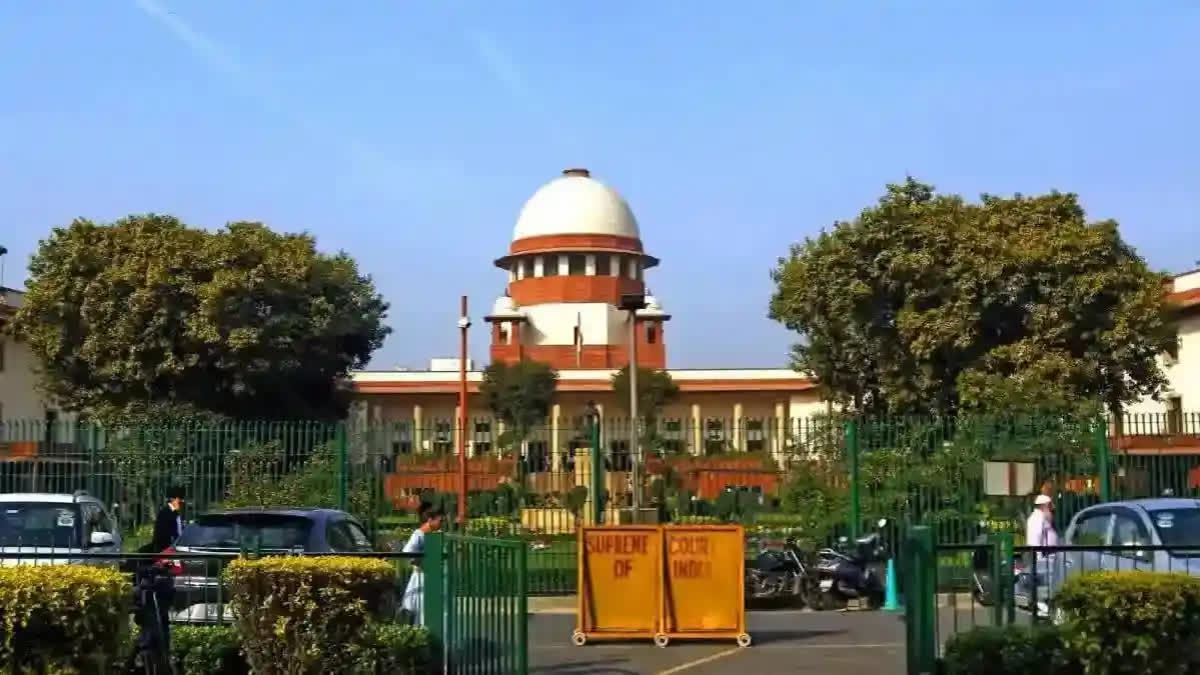New Delhi: In a big relief for Delhi Metro Rail Corporation (DMRC), the Supreme Court on Wednesday allowed its curative petition against an arbitral award directing it to pay Reliance Infrastructure subsidiary, Delhi Airport Metro Express Private Limited (DAMEPL), nearly Rs 8,000 crore.
A three-judge bench led by Chief Justice of India D Y Chandrachud and comprising Justices B R Gavai and Surya Kant set aside the previous judgment by the top court, which directed the DMRC to pay an arbitral award of Rs 8,000 crore to DAMEPL, saying "the judgment of the two-judge bench of this court, which interfered with the judgment of the division bench of the High Court, has resulted in a miscarriage of justice."
"This court failed while entertaining the special leave petition under Article 136, to justify its interference with the well-considered decision of the division bench of the High Court," said the CJI, who authored the judgment on behalf of the bench.
The CJI said by setting aside the judgement of the division bench, this court restored a patently illegal award which saddled a public utility with an exorbitant liability.
"This has caused a grave miscarriage of justice, which warrants the exercise of the power under Article 142 in a Curative petition, in terms of Rupa Hurra (2002)," said the bench, allowing DMRC's curative petition.
The bench said parties are restored to the position in which they were on the pronouncement of the judgment of the division bench. “The execution proceedings before the High Court for enforcing the arbitral award must be discontinued and the amounts deposited by the petitioner pursuant to the judgment of this court shall be refunded. The part of the awarded amount, if any, paid by the petitioner as a result of coercive action is liable to be restored in favour of the petitioner," said the CJI.
The bench orders passed by the High Court in the course of the execution proceedings for enforcing the arbitral award are set aside. The top court clarified that the exercise of the curative jurisdiction of this court should not be adopted as a matter of ordinary course. The curative jurisdiction should not be used to open the floodgates and create a fourth or fifth stage of court intervention in an arbitral award, under this court’s review jurisdiction or curative jurisdiction, respectively, it added.
The judgment of the division bench provided more than adequate reasons to come to the conclusion that the arbitral award suffered from perversity and patent illegality.
"The interference by this court has resulted in restoring a patently illegal award. This has caused a grave miscarriage of justice. We have applied the standard of a 'grave miscarriage of justice' in the exceptional circumstances of this case where the process of arbitration has been perverted by the arbitral tribunal to provide an undeserved windfall to DAMEPL," said the CJI.
The apex court observed that a 'finding' based on no evidence at all or an award which ignores vital evidence in arriving at its decision would be perverse and liable to be set aside under the head of 'patent illegality.
"An award without reasons would suffer from patent illegality. The arbitrator commits a patent illegality by deciding a matter not within his jurisdiction or violating a fundamental principle of natural justice," observed the bench.
The apex court said there is a fundamental error in the manner in which this court dealt with the challenge to the decision of the High Court. The division bench had held that the award overlooked crucial facts and evidence on record that were crucial to the determination of the issues before the arbitral tribunal, which led to the award being perverse and patently illegal.
The apex court said the award overlooked the express terms of a clause which stipulated that if "effective steps" were taken during the cure period by DMRC, the contractual power to terminate could not be exercised.
"This Court incorrectly considered the Commissioner of Metro Railway Safety (CMRS) certificate to be irrelevant to the validity of the termination……The judgment of this court also never tested the relevance of the CMRS certificate vis-à-vis “effective steps”… This court not only overlooked the plain words of the clause but also rendered the phrase 'effective steps' otiose," said the bench.
The apex court said the contract, which is a culmination of the parties' agency, should be given full effect and if the interpretation of the terms of the contract as adopted by the tribunal was not even a possible view, the award is perverse.
The DMRC had lost its appeal challenging the award in the top court in September 2021. After which, DAMEPL moved the Delhi High Court to execute the award. In August last year, the apex court had asked the High Court to defer the proceedings till a decision on the curative plea was made.
Attorney General R Venkataramani and senior advocate KK Venugopal, representing the DMRC, contended before the apex court that after the termination of the contract, the airport line has been successfully operated by DMRC since July 2013.
DAMEPL had raised safety issues in continuing with the contract to operate the 22.7km Airport Metro Express line, after which DMRC cancelled the contract in October 2012
Read More



